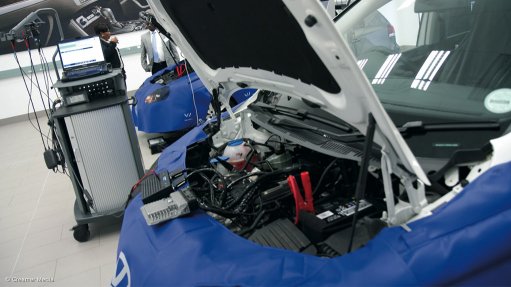
Photo by: Duane Daws
Projected capital expenditure (capex) in the South African automotive assembly industry should reach a record R7.48-billion this year, said the National Association of Automobile Manufacturers of South Africa (Naamsa) in its 2014 fourth quarter business review, released on Monday.
Capex by the country’s seven major vehicle manufacturers and various truck producers reached R6.91-billion in 2014, and R4.34-billion in 2013.
Last year’s capex already represented a record, noted Naamsa.
“Relatively high levels in capex in recent, and particularly future years, may be attributed to investment projects by manufacturers in terms of the Automotive Production and Development Programme.”
Naamsa also reported that employment in the automotive assembly industry had grown to 30 466 people in the fourth quarter of last year, which was an increase of 1 478 jobs, or 5.1%, compared with the industry headcount at the end of the third quarter of 2014.
The association believed the “substantial increase” in the industry headcount was related to higher levels of vehicle production during the fourth quarter, as well as anticipated growth in vehicle output in 2015.
South African new vehicle production increased marginally to 566 083 vehicles in 2014, up from 545 913 units in 2013.
Naamsa expected 2015 production to grow 10%, to 625 000 units.
The association also highlighted that new vehicle exports from South Africa to the rest of Africa had fallen by 21.8% in 2014 over 2013, to 61 593 units.
Exports to Europe increased 27.2%, to 101 530 units in 2014, with exports to North America down 26.6%, to 47 985 units, and exports to Australasia up 88.6%, to 29 856 units.
Naamsa expected domestic new vehicle sales to increase by around 3% in 2015 compared with last year.
“However, the key imponderable involves security and stability of electricity supply.”